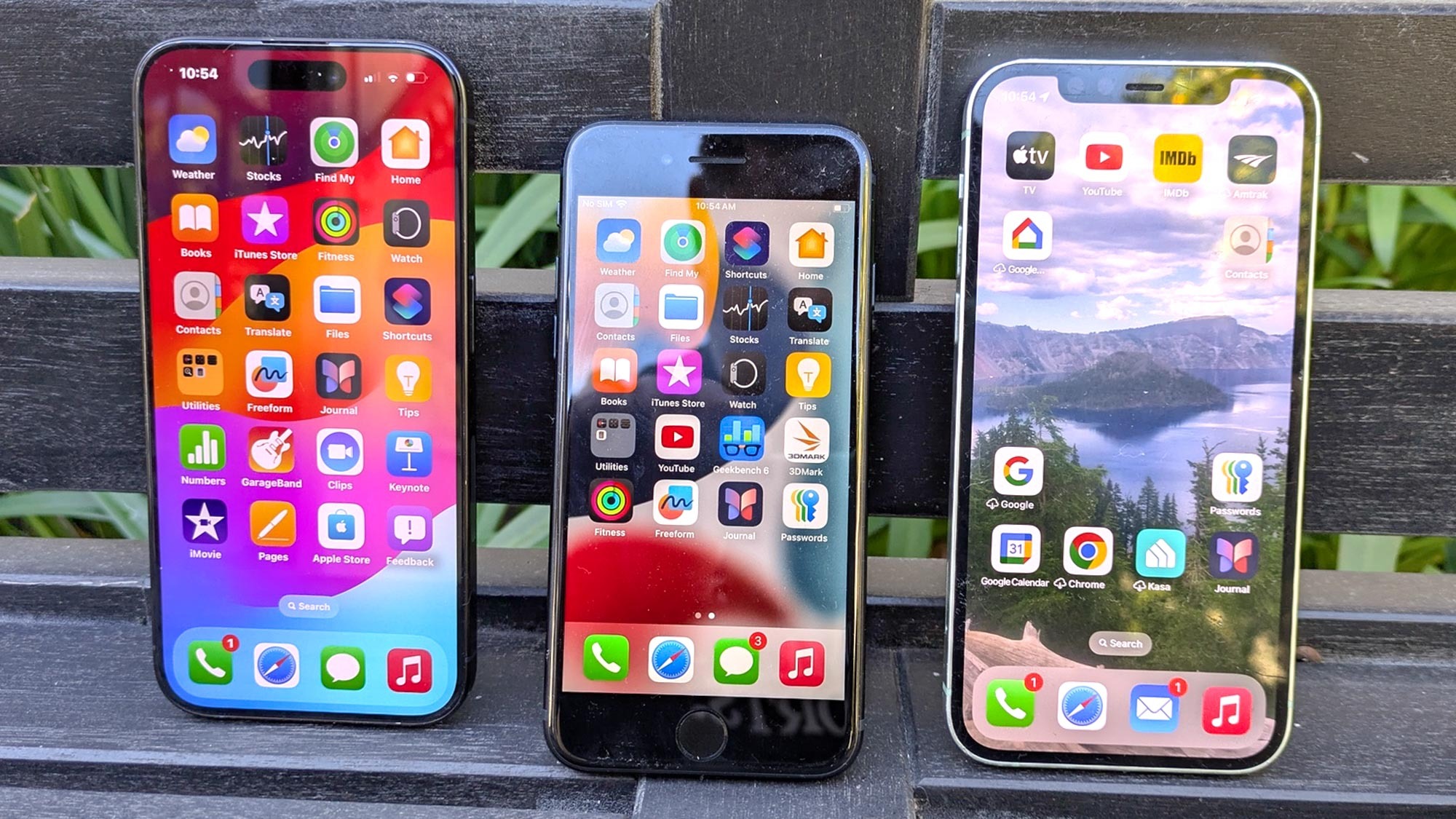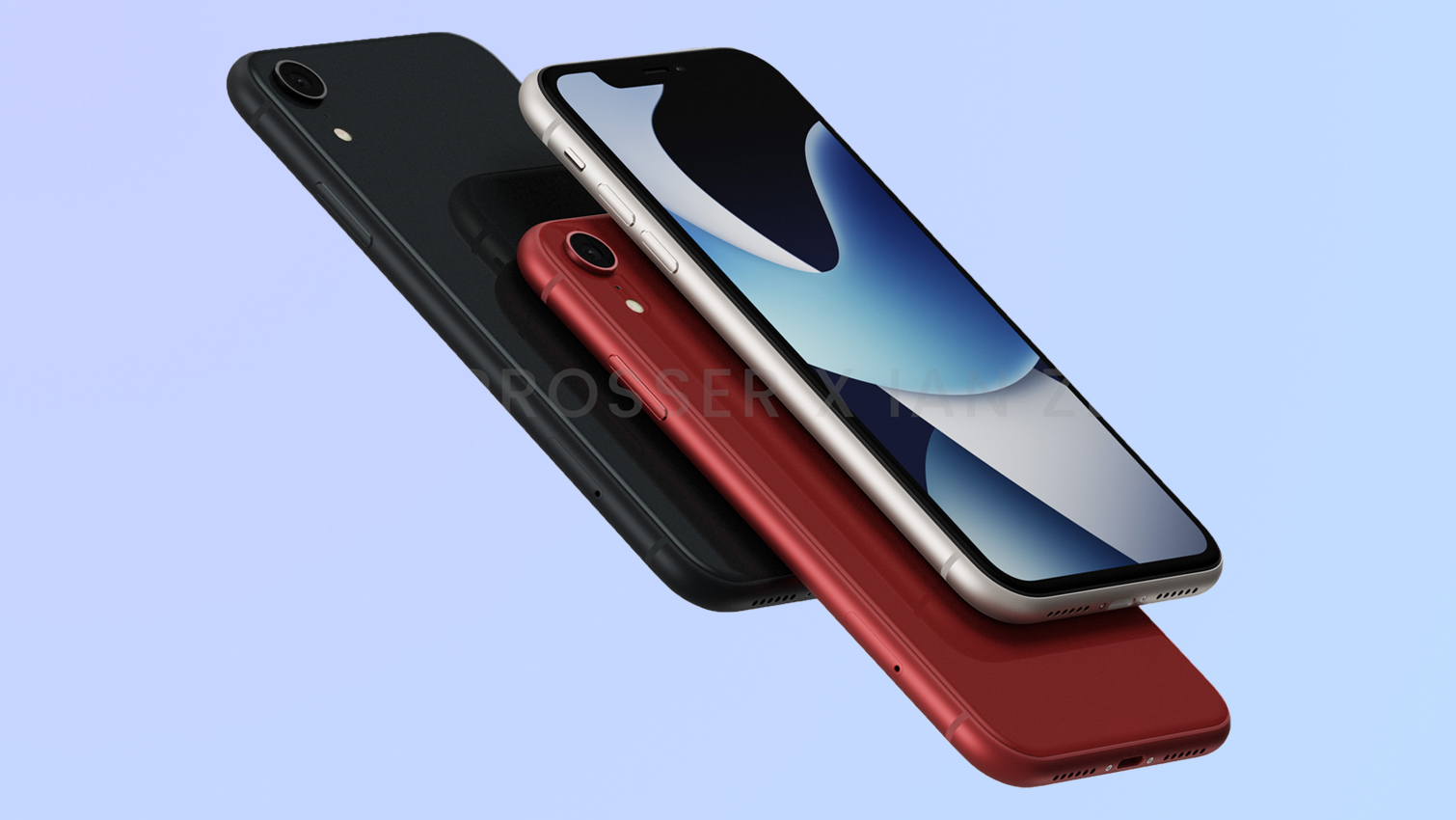
I'm not afraid to say the original iPhone SE may have been one of the best iPhones I've ever used. Working in this business affords you the luxury of using loaner phones, but shortly after the iPhone SE's 2016 release, I went out and bought one with my own money. I was taken with its compact size and — especially — its miniaturized price tag.
That original iPhone SE gave up the ghost several years back, and the demands of phone reviews and feature writing have had me relying on a wide variety of iPhones and Android devices ever since. So last week, I got the chance to reacquaint myself ever so briefly with the iPhone SE 2022 for the first time since comparing Apple's phone to the Pixel 7a at some point last year. And as I held that still compact, still affordable device in my hand, one question kept echoing in my head about the iPhone SE.
How did I ever live like this?
The iPhone SE found its way back into my life as I was updating our guide to the best phones and needed to rerun some test numbers so that the benchmarks we had for this two-year-old phone were apples-to-apples comparisons with the other top-ranked handsets. (Spoiler alert: the iPhone SE's A15 Bionic chipset that's three generations behind the A18 silicon in the iPhone 16 family is starting to show its age.) And since I had a fully fired-up iPhone on my hands, I reacquainted myself with that phone's interface and Touch ID controls.
The iPhone SE's dated look

For context, I use an iPhone 12 for a lot of day-to-day activities, and I turn to an iPhone 15 Pro when I need to test out Apple Intelligence features. Both of those phones feature 6.1-inch displays. Meanwhile, I'm also wrapping up testing on the Galaxy A35, a midrange Android device — an iPhone SE competitor for the best cheap phone — with a 6.6-inch panel. Using the phones and then turning to a 4.7-inch iPhone SE made me feel like I was using a postage stamp-sized screen.
It doesn't help that the top and bottom of the screen features some very chunky bezels, compared to the more-or-less edge-to-edge displays of those other phones I mentioned. That's a design decision that reflects the need to fit a Touch ID sensor under the iPhone SE's home button — something modern iPhones don't have to worry about since they rely on Face ID to unlock the phone and verify Apple Pay purchases. But the end result is that the already tiny iPhone SE screen feels even more cramped. I felt like I was scrolling my way through a child's phone.
You could chalk this all up as a testament to how fast technology can evolve in two years, and how tastes and practices can change once we find a better way of doing things — in this case, shrinking the bezels of phones to squeeze in more screen real estate. Of course, the look of the iPhone SE (2022) felt dated when the phone came out two years ago, especially since the newer model was essentially a repackaged iPhone SE (2020) with 5G connectivity added.
Change is on the way

The good news is that Apple probably recognizes this, which is why so many iPhone SE 4 rumors tip the upcoming phone to feature an updated design. It's widely assumed that Apple will make the next iPhone SE look like an iPhone 14, as that will give the budget model a more expansive display and Face ID sensor while reserving a feature like Dynamic Island for more premium iPhones.
Apple will likely address the aging chipset, too, and if the iPhone SE 4 arrives in spring 2025 as most people expect, that means it will turn to the silicon used in iPhones released the previous fall. That would mean an A18 system-on-chip, which is what you'll find in the iPhone 16 and iPhone 16 Plus.
Both the new design and more recent silicon would be welcome additions to any new iPhone SE model. But I hope that Apple takes this opportunity to do a little forward thinking so that people who pick up an iPhone SE 4 in, say, 2027 don't get the same feeling I have when trying to use an iPhone SE (2022) today. That will require changes that not only address what's dated but also future-proof the iPhone SE a little bit.
My guess is that Apple will consider support for Apple Intelligence features to be that addition that makes the next iPhone SE a little more forward looking. Assuming the new phone does in fact feature an A18 chipset, it will be able to run Apple Intelligence — not just the suite of AI features rolling out now via various iOS 18 updates, but new capabilities that will be part of future iOS updates for years to come.
Will that be enough? We'll figure that out around March 2025 when the iPhone SE 4 is supposed to make its scheduled debut. But it's never been more apparent that Apple needs to do something to freshen up the least expensive phone in its lineup — all you have to do is look at the iPhone SE to notice.







